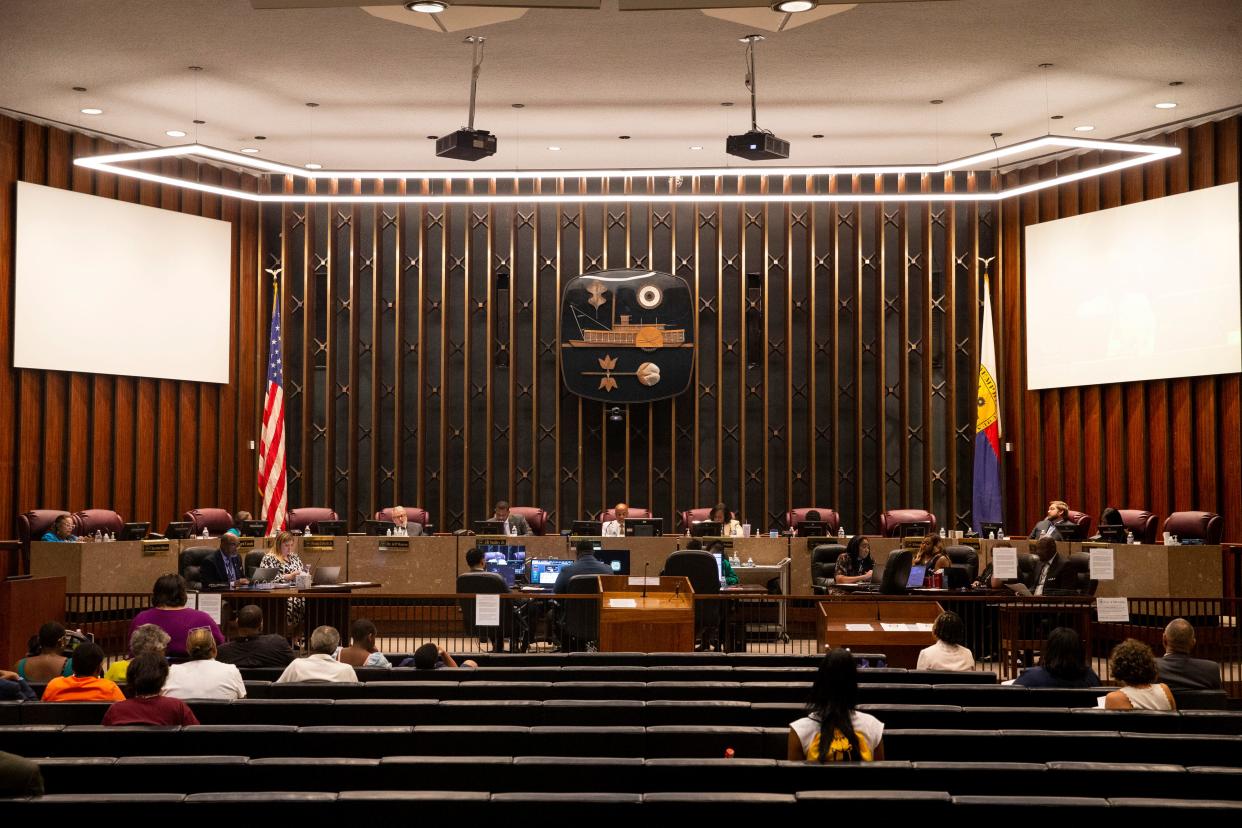Proposal for partisan mayoral elections met with skepticism by Memphis City Council

Placing a ballot referendum to establish partisan city elections in front of Memphians was met with scrutiny and skepticism from some Memphis City Councilmembers, and a referendum on runoff elections for mayoral elections was met with intrigue, during a committee meeting Tuesday morning.
The two referendums were slated for a third and final reading at a full Memphis City Council meeting later that same day but were tabled until the next meeting on Nov. 21. If passed, they would appear on the ballot during the next general election for Memphians to vote on. Partisan elections, supporters of that referendum said, would limit the candidate pool to ensure a mayor wins with an electoral mandate. Runoff voting, its supporters say, would do the same thing without adding partisan politics to city government.
“What I’m asking here in committee is for us to hold [the referendums] until our next meeting, and the purpose of that is that we will have the results of the current (city council) runoff election,” Council Chair Martavius Jones said.
Discussions on the referendums were renewed following the most recent city elections and were namely spurred by the 17 candidates on the ballot for Memphis mayor and Mayor-elect Paul Young’s victory with less than 28% of ballots cast going his way.
The first of those referendums, which would create partisan races with primaries to limit the field, was sponsored by Jones, the term-limited chair of the council who is in his final weeks with the elected body.
“This is not about increasing the turnout,” Jones said of the referendum’s purpose. “This is about precisely what I’ve heard from a lot of people: ’17 folks in a race? I don’t know who to vote for.’ This is a way for us to whittle down that number where people don’t have to choose from 17 candidates.”
Opponents of Jones’ referendum ― most vocal among them Tuesday was Councilman Chase Carlisle ― said partisanship creates animosity and would run counter to what has allowed the Memphis City Council to be collaborative.
“There may be leanings, but when we talk about progressive issues, everyone on this body wants affordable housing to happen. Everybody on this body wants to ensure that trash is picked up. We may have different ways that we want to get there, but there are very few issues,” Carlisle said.
City news: Memphis could hike solid waste collection fees in 2024. And more increases can come
He added that partisanship, in his mind, is a “very clear and present danger.”
Discussion on the second referendum, which would create a runoff election for the city mayoral race, focused on the possibility of creating language that would allow for ranked choice voting after Jones pointed to exponentially lower voter turnout at runoff elections.
Carlisle voiced support for ranked choice, also known as instant runoff, voting. In that type of voting, which is used around the United States, voters select and order their candidates based on which one they would prefer if their first choice were not to win.
The Tennessee General Assembly banned the use of ranked-choice voting in the state, but Carlisle suggested this referendum contain trigger language if the state legislature were to change course and permit that type of voting.
“I’m a businessman,” Carlisle said, “so I’m looking at the business environment that we’re in, I’m looking at voter participation. I’m looking at the cost of elections. I’m looking at the fall of [of voter turnout in runoff elections], so 50% plus one doesn’t work.”
In the runoff system, which is currently used for single district city council seats, a race will go to a runoff election if no candidate receives more than 50% of the vote. The top two candidates from that race make the runoff ballot. Those runoff elections have historically had significantly lower turnout than general elections.
In 1991, U.S. District Judge Jerome Turner ruled that at-large elections for city positions be allowed to proceed, but without runoffs. His ruling came after two Black Memphians and the U.S. Department of Justice sued, arguing that runoffs were created for the purpose and had the effect of diluting the Black vote.
In his ruling, Turner said runoffs for at-large seats were created to “make sure whites retain power.”
This article originally appeared on Memphis Commercial Appeal: Memphis City Council debates ranked-choice voting for mayoral elections

